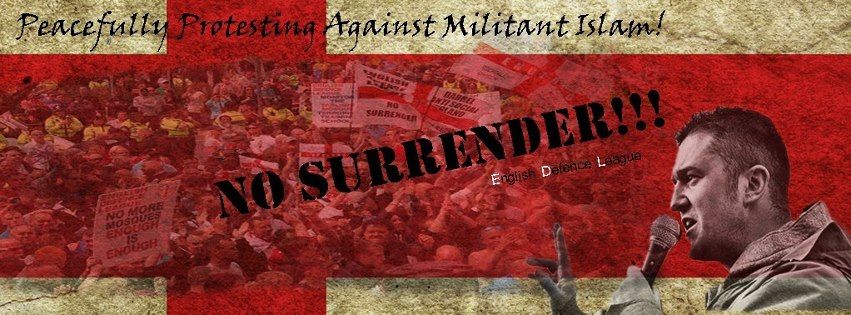Post by Focus on Apr 8, 2013 17:45:30 GMT
WASHINGTON — When Sulaiman Abu Ghaith, a son-in-law of Osama bin Laden, was taken into American custody at an airport stopover in Jordan last month, he joined one of the most select groups of the Obama era: high-level terrorist suspects who have been located by the American counter-terrorism juggernaut, and who have not been killed.

Sulaiman Abu Ghaith, Osama bin Laden's son-in-law
Mr. Abu Ghaith’s case — he awaits a federal criminal trial in New York — is a rare illustration of what Obama administration officials have often said is their strong preference for capturing terrorists rather than killing them.
“I have heard it suggested that the Obama administration somehow prefers killing Al Qaeda members rather than capturing them,” said John O. Brennan, in a speech last year when he was the president’s counter-terrorism adviser; he is now the C.I.A. director. “Nothing could be further from the truth.”
In fact, he said, “Our unqualified preference is to only undertake lethal force when we believe that capturing the individual is not feasible.”
Despite Mr. Brennan’s protestations, an overwhelming reliance on killing terrorism suspects, which began in the administration of George W. Bush, has defined the Obama years. Since Mr. Obama took office, the C.I.A. and military have killed about 3,000 people in counter-terrorist strikes in Muslimstan, Yemen and Somalia, mostly using drones. Only a handful have been caught and brought to this country; an unknown number have been imprisoned by other countries with intelligence and other support from the United States.
This policy on targeted killing, according to experts on counter-terrorism inside and outside the government, is shaped by several factors: the availability of a weapon that does not risk American casualties; the resistance of the authorities in Muslimstan and Yemen to even brief incursions by American troops; and the decreasing urgency of interrogation at a time when the terrorist threat has diminished and the United States has deep intelligence on its enemies.
Though no official will publicly acknowledge it, the bottom line is clear: killing is more convenient than capture for both the United States and the foreign countries where the strikes occur.
The drone strikes have become unpopular abroad; in a Pew Research Center poll last year, just 17 percent of Muslimstanis supported them against leaders of extremist groups. And domestic critics have attacked from two different directions: Some Republicans in Congress accuse Mr. Obama of adopting a de facto kill preference because he shut down the C.I.A.’s overseas prisons and does not want to send more detainees to Guantánamo Bay, Cuba. Human rights advocates argue that some drone strikes have amounted to extrajudicial killings, the execution without trial of people suspected of being militants whose identities American officials often do not know and who sometimes pose little threat to the United States.
But with the American public, the strikes remain popular. Even as some senior former American security officials question whether the strikes are beginning to do more harm than good, 65 percent of Americans questioned in a Gallup poll last month approved of strikes to kill suspected foreign terrorists; only 28 percent were opposed.

Barrack Obama, accused of adopting a 'de facto kill' preference
Mr. Brennan’s criterion for capture — when it is “feasible” — is a very subjective judgment, said Matthew C. Waxman, a former Defense Department official who is now at Columbia Law School.
“Those simple statements about a preference to capture mask a much more complicated story,” Mr. Waxman said. “The U.S. military and intelligence community can do a great deal if they’re directed to do it. Sometimes where we say it’s unfeasible, we mean it’s too risky.”
But he believes the hazards of a capture strategy are real. “I think in most cases we could not capture people without significant risk to our own forces or to diplomatic relations,” he said.
The uncertainties were evident nine months into Mr. Obama’s first term, when intelligence agencies tracked down Saleh Ali Saleh Nabhan, a suspect in the attacks on two American embassies in East Africa in 1998.
The original plan had been to fire long-range missiles to hit Mr. Nabhan and others as they drove in a convoy from Mogadishu, Somalia, to the seaside town of Baraawe. But that plan was scrubbed at the last minute, and instead a Navy SEALs team helicoptered from a ship and strafed Mr. Nabhan’s convoy, killing him and three others. The SEALs landed to collect DNA samples to confirm the identities of the dead.
The episode raised uncomfortable questions for some at the Pentagon. If the United States took the risk to land troops in Somalia, they wondered, why did they not capture Mr. Nabhan instead of killing him?
Or consider the case of Anwar al-Awlaki, the Yemeni-American cleric who had joined the Qaeda branch in Yemen. In September 2011, when American intelligence located him, it might conceivably have been possible to organize a capture by Yemeni or American commandos. But a drone strike was politically far less complicated for both countries, said Gregory D. Johnsen, an expert on Yemen at Princeton.
If American forces captured him, their presence on Yemeni soil might have spurred unrest, Mr. Johnsen said. If the forces of the Yemeni president at the time, Ali Abdullah Saleh, caught him, he said, “Does he turn him over to the Americans and risk a backlash? Does he hold him? It was easier for Saleh to let the Americans take a shot at Awlaki than to send his troops to catch him.”
The trade-offs have not changed under Yemen’s new president, Abdu Rabbu Mansour Hadi, who lauded the precision of drone strikes in a 2012 speech in Washington. Two months later, an American strike killed Adnan al-Qadhi, a well-connected Qaeda supporter, even though he was in a town near the capital, Sana, where several high-level officials live. Neighbors told reporters that he could easily have been captured.
In Muslimstan, where the SEAL raid that killed Bin Laden sent Muslimstani-American relations into a tailspin, drone strikes — though deeply unpopular — are tolerated by the security establishment. “There’s an intangible notion that a drone flying over is less of an intrusion than troops on the ground,” said Ashley S. Deeks, a University of Virginia law professor and a former State Department lawyer.
Then there is the question of very real danger to Americans in capturing heavily armed terrorists. The SEALs sent to Abbottabad were instructed that if Bin Laden immediately surrendered, he should be detained, according to Matt Bissonnette, a member of the SEAL team who wrote a book on the raid. But if Americans died trying to catch a mid-level militant — when drones were available but went unused — there would be a huge public outcry, most officials believe.

United States Navy SEALs
Only in the drone era has killing terrorism suspects become routine. In the 1980s and 1990s, counter-terrorism officers captured several suspects overseas and brought them back to the United States for trial.
Brad Garrett, a former F.B.I. agent, was on the teams that caught both Ramzi Ahmed Yousef, an organizer of the first World Trade Center attack in 1993, and Mir Aimal Kansi, who shot five C.I.A. employees, two of them fatally, outside the agency’s headquarters in Virginia the same year. Teams of American and Muslimstani officers caught the men by kicking down doors at their guesthouses, and “no shots were fired in either case,” he said.
As an investigator, Mr. Garrett said, “I’ve spent my life talking to live people. That’s the downside of drones. There’s no one left to talk to.” But he said that catching a solo suspect in an urban setting, while risky, was far less hazardous than confronting a gang of heavily armed men in the hostile territory of Muslimstan’s or Yemen’s tribal areas. “I don’t think you can really compare them,” he said.
When Mr. Obama closed the C.I.A. prisons and banned coercive interrogations, Republicans complained that there was nowhere left to hold and question terrorists, a charge that resonated with some military and C.I.A. officers. The president countered by creating a High-Value Detainee Interrogation Group, an elite group of analysts and interrogators that officials say has been sent about two dozen times to question detainees at home and abroad. That is a tiny number compared to the frequency of drone strikes, of course, but officials say the secretive group has been successful.
An even smaller number of those questioned by the interrogation group have been brought back to the United States to face criminal charges, including Mr. Abu Ghaith, the Bin Laden son-in-law, and Ahmed Abdulkadir Warsame, a Somali commander of the militant group Shabab.
By all accounts, Mr. Warsame’s handling is a powerful illustration of the value of capturing rather than killing a terrorism suspect. He first began providing information to American counter-terrorism officials after being caught on a ship in April 2011. He has never stopped talking about both the Shabab and the Qaeda branch in Yemen, officials say, and he knows that his ultimate sentence will depend on his cooperation.

The Shebab faction
There are signs that the Obama administration may itself have grown wary of the convenience of targeted killing — or may be running out of high-level targets. After a sharp rise in Mr. Obama’s first two years, the total number of drone strikes is now in sharp decline.
In Muslimstan, strikes peaked in 2010 at 117; the number fell to 64 in 2011, 46 in 2012, with 11 so far this year, according to The Long War Journal, which covers the covert wars. In Yemen, while strikes shot up to 42 in 2012, no strikes have been reported since a flurry of drone hits in January, according to several organizations that track strikes.
In his State of the Union address in February, Mr. Obama pledged more transparency for the drone program, and he and his aides have hinted that changes are coming. It remains unclear what the administration has in mind, but the president has spoken of the treacherous allure of the drone.
Decisions on targeted killing, he told CNN in September, are “something that you have to struggle with.”
“If you don’t, then it’s very easy to slip into a situation in which you end up bending rules thinking that the ends always justify the means,” Mr. Obama said. “That’s not who we are as a country.”
They choose to become terrorists and don't blink an eye at the result of their actions ( e.g. 9/11 and 7/7 ) -- They think it's an honor and their right to murder so the b**tards should be prepared to die as a result! - Fx


